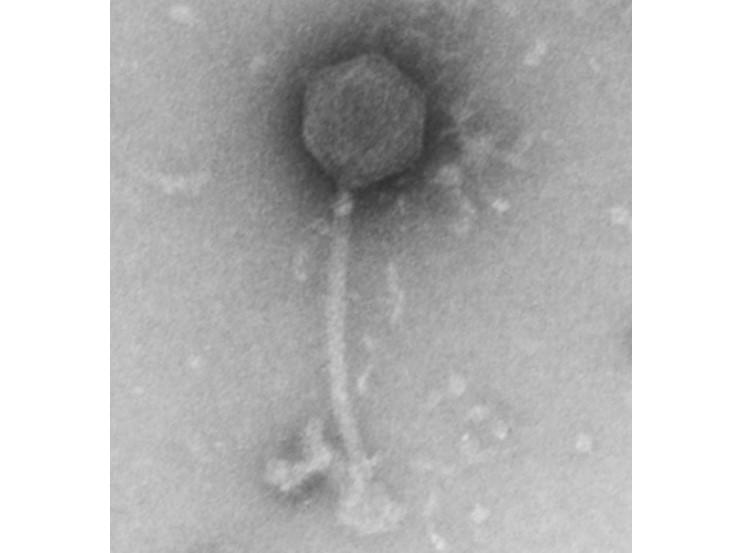
Shiga toxigenic and commensal Escherichia coli and bacteriophages in cattle
In the current study we plan a sampling of cattle farms in Hungary. We wish to isolate STEC and related E. coli strains from the samples, and to characterise them in-depth, both pheno- and genotypically, with emphasis on mobile genetic elements, and especially on prophages and lytic bacteriophages . Comparative genomic studies will be conducted using E. coli isolates of human origin, those isolated from cattle carcasses and reference strains available in databases from around the world.
Escherichia coli is a bacterium of the normal intestinal microbiota of mammals, but it also contains various pathogenic strains, capable of causing serious diseases in animals and humans. One of their characteristic feature is great genetic variability, which is partly due to the mechanism of horizontal gene transfer. Through this mechanism, many of the virulence (disease-associated) and fitness genes are exchanged between different strains of E. coli. These genes encode traits like production of toxins. Many human pathogenic E. coli are associated with foodborne infections, and are carried by healthy cattle, therefore they are termed zoonotic. In this study we plan to take samples of cattle herds in Hungary, to isolate potentially zoonotic E. coli strains. We will characterise their virulence properties, study their genetic material, and compare strains isolated from animals with those isolated from humans, both in Hungary and from international strain collections. Bacteriophages – viruses infecting bacteria – are known to play significant role as agents of horizontal gene transfer in E. coli, while also acting as predators against bacteria. Therefore, bacteriophages integrated into the genomes of the isolated E. coli strains as prophages will also be investigated. Free bacteriophages associated with E. coli from cattle will also be isolated and characterized from the same animals. Our results will aid in understanding the genetic variability of pathogenic E. coli and the study of bacteriophages will help to find potential candidates for being used as antibacterial agents, applicable in therapy as well as in food safety.
Dr. Jánosi, Szilárd, PhD, (NÉBIH ÁDI, Budapest)
Dr. Jurkovich, Viktor, PhD, (ÁTE, Budapest)
Dr. Maróti, Gergely, PhD, tudományos főmunkatárs, MTA SzBK, Biokémiai Intézet, Szeged
Dr. Bálint, Balázs, SeqOmics Biotechnológia Kft, Mórahalom
Dr. Mag, Tünde, Országos Közegészségügyi Intézet, Bakteriológai osztály, Budapest
Prof. Dr. Trinad Chakraborty and Dr. Linda Falgenhauer, Institute of Medical Microbiology, Justus Liebig University Giessen and German Center for Infection Research (DZIF), Giessen, Germany